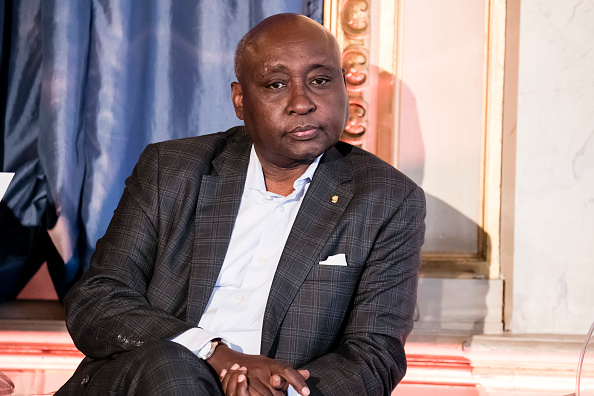
Former AfDB president dismisses notion that Africa will sink in debt

Former African Development Bank (AfDB) president Donald Kaberuka on Sunday strongly dismissed speculation that Africa will sink in debt.
Kaberuka, who spoke during a panel session at the inaugural Kusi Ideas Festival in the Rwandan capital Kigali, termed such an idea as “nonsensical” and one not supported by numbers.
“When you look at access of Africa to global debt, it is infinitesimal. It is a very small share of debt globally. Since the global financial crisis, literally, sovereign debt, corporate debt has gone off. The increase in Africa has been quite modest,” Kaberuka said.
The International Monetary Fund has previously warned of Africa’s rising debt burden and identified seven countries which are in debt distress. The countries are: Congo, Eritrea, Gambia, Mozambique, Sao Tome and Principe, South Sudan and Zimbabwe. The Fund also singled out nine other countries, including Ethiopia and Ghana, which it said are at risk of high debt distress.
Kaberuka said that public finance management, how the funds borrowed are utilised, is a different discussion to have.
The Rwandan economist, however, admitted that Africa’s efforts in mobilizing domestic revenue have declined which has in turn increased borrowing to plug existing revenue gaps.
“There are some countries which were doing up to 21 percent of GDP in revenue collection. That has declined to about 16 percent. That is five percentage points every year; is plenty of money. That is replaced by external borrowing.”
In April, the IMF also cautioned African countries experiencing a slump in commodity prices to, among other things, improve their tax collection and re-balance sustainable debt.
Kaberuka said that Africa could actually be able to take on a little more debt if it improved in specific areas including domestic revenue mobilization, public financial management and debt management capabilities.
The Kusi Ideas Festival aims at bringing together leaders, think-tanks, businesspeople, academia, members of the media, among others, to discuss the future of Africa in the next 60 years.






